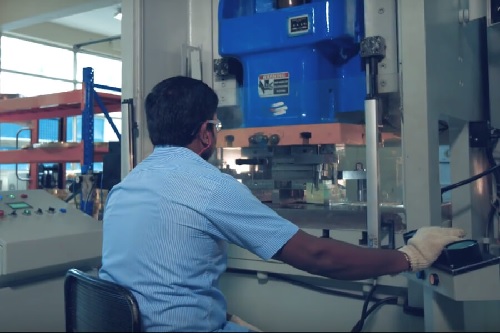Progressive Tooling Systems: A Game-Changer for Stamping Companies
In recent days, stamping companies are seeking innovative solutions to improve product quality in manufacturing. One of the recent advancements in this field is utilizing progressive tooling systems.
These systems have changed the way stamping operations are conducted. It provides important benefits and addresses the demands of the market. Here you can see the advantages of a progressive tooling system and its implementation:
Understanding Progressive Tooling Systems
Progressive tooling systems are designed to simplify the mass production of parts through a series of stamping operations performed in a single press stroke. This method utilizes a die to perform multiple operations sequentially which can include cutting, bending and forming metal parts. By allowing for various processes to occur in a single pass, these progressive tooling systems minimize the need for multiple setups and machines. It makes the production workflow easy.
The design of progressive tooling systems includes various stations in a single die. As the metal strip passes through each station, it undergoes specific changes until the final part is produced. This innovative approach improves efficiency and enhances precision. This makes it a perfect choice for a stamping company aiming to produce high-quality components.
Advantages of Progressive Tooling Systems
Increased Efficiency
One of the important advantages of progressive tooling systems is to increase efficiency. By integrating multiple processes into a single operation, stamping companies can produce parts more than with traditional tooling methods. With this reduction in cycle time, manufacturers can meet higher production demands.
Errors and misalignments are decreased when several setups are eliminated. Rework may be expensive as a result. A production process with fewer phases allows businesses to streamline operations and maximize resource use.
Cost Reduction
Using progressive tooling systems can lead to cost savings for stamping companies. By minimizing the number of setups and machinery required, stamping companies can reduce their capital expenditures and operational costs. The ability to produce parts lowers labor costs and some operators are needed to handle various machines.
Additionally, the reduction in waste generated during the production process contributes to cost savings. As manufacturers focus on quality and efficiency, they can optimize material usage and minimize scrap.
Enhanced Precision
Quality is important in the growing market. Progressive tooling systems excel in delivering high precision and consistent quality. The nature of these progressive tooling systems ensures each part is manufactured to the right specifications. It reduces the risk of defects.
Because all operations are performed within a single die, the alignment and positioning of components are maintained throughout the process. This consistency improves the overall quality of the finished products and enhances the reliability of the supply chain. It ensures customers receive components to meet their requirements.
Flexibility
Another important benefit of progressive tooling systems is their flexibility. These progressive tooling systems can be designed to accommodate a wide range of part sizes and shapes. This makes them suitable for various applications across multiple industries. Whether it is automotive, aerospace or electronics, stamping company can customize their progressive dies to meet production needs.
This flexibility allows manufacturers to adapt to this market demand. When new products come or design specifications change, companies can customize their progressive tooling systems to accommodate these changes. It ensures they remain strong in this dynamic market.
Implementing Progressive Tooling Systems
While the benefits of progressive tooling systems are clear, proper implementation requires careful planning and consideration. Stamping companies must conduct thorough feasibility studies to determine the suitability of progressive tooling for their specific operations.
Design Considerations
The design of a progressive tooling system is important. Factors such as material, complexity and desired production volume must be taken during the design phase. Collaborating with tooling experts can help companies create a progressive tooling system to maximize efficiency.
Training and Skill Development
Investing in training and skill development for workers is important when using new technology. Operators and technicians must know how to operate and maintain the progressive tooling systems to ensure optimal performance. This includes operators who understand how to troubleshoot issues and make necessary adjustments.
To Wrap It Up
Progressive tooling systems represent a game changing advancement for stamping companies. With the above read, these progressive tooling systems are redefining the standards for manufacturing excellence. By utilizing progressive tooling systems, stamping companies can meet the demands of their customers and position themselves as top in the manufacturing field.













Post Comment